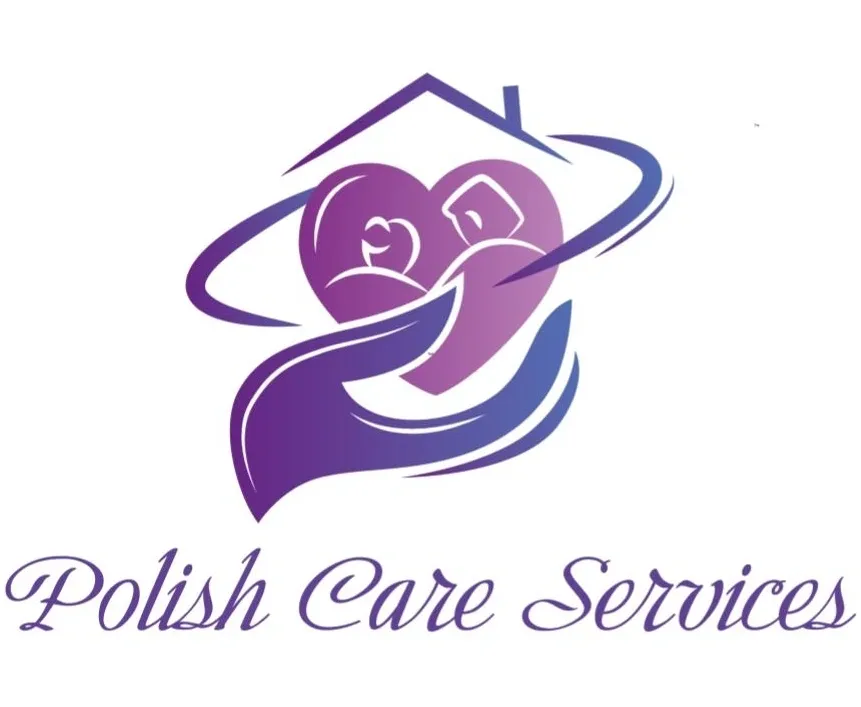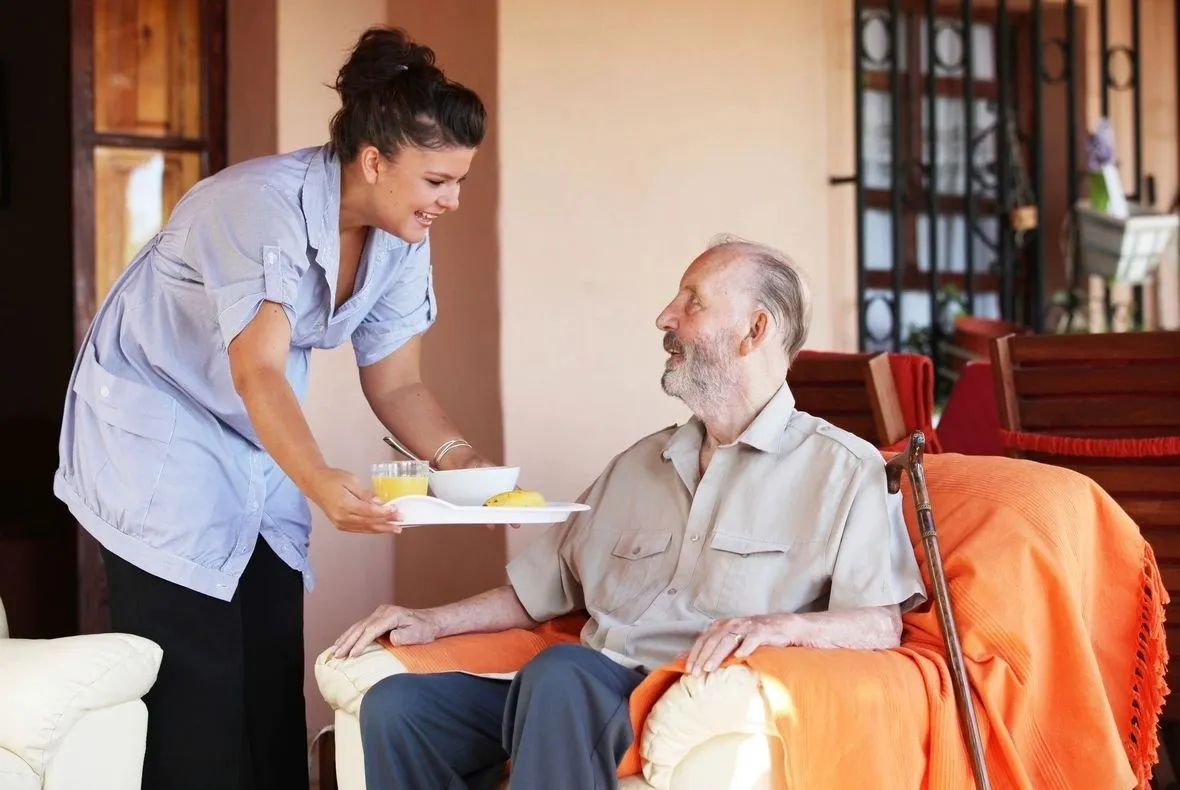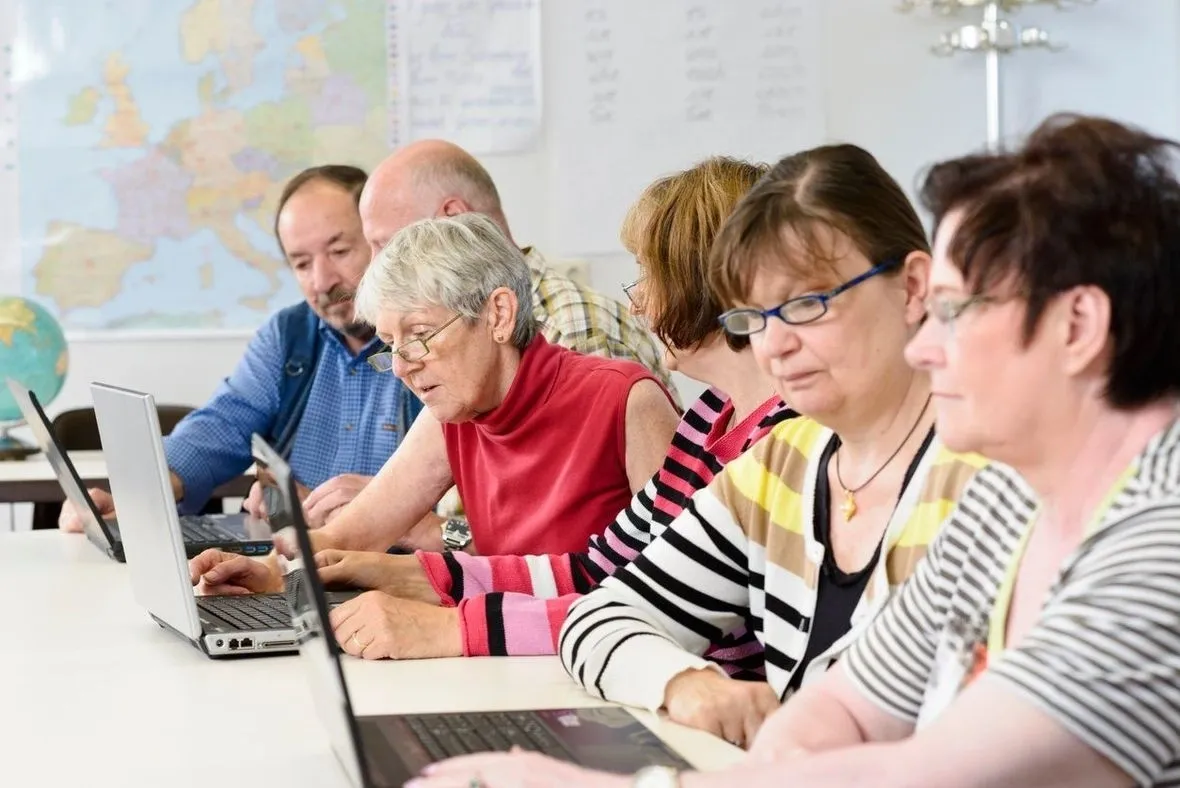
Polish Care Services Hartford’s Finest Series
September 27th, 2019aging in place, Alzheimer's Care, Caregiver Service, Dementia Care, In Home Care, Long Term Care, Polish Care Services, Senior Care Services,
Thank you for nominating and featuring Polish Care Services as part of the Hartford Courant and CTNow Hartford’s Finest series.
Polish Care Services is a a senior care agency in Farmington, Connecticut that provide caregivers for seniors in Connecticut.
The care team accepts longterm insurance, private pay, and Medicaid for live in and hourly services.

Prepare: Rooms in Your Home for an Elderly Loved One to Move
June 21st, 2019aging in place, Caregiver Service, Dementia Care, Elderly Care, In Home Care, Long Term Care, Polish Care Services, Senior Care Services,
If you have an elderly loved one in your life who has reached a stage of being unable to safely live alone, it is a kind and loving gesture to open up your elderly home to take them in. This may be an alternate means to manage costs, and with a caregiver service, still manage the quality of care care that is required. Bringing any roommate into your home requires some changes. So, here are tips on how to get your home ready for your elderly loved.
Decide Where the Bedroom Will Be
You need to decide first which bedroom is best for them to use. In a two-story home, you will want to put their bedroom downstairs to avoid the stairs if possible. According to Science Direct, stairway falls represent a high percentage of falls and often result in severe injury. If avoiding the stairs isn’t an option, there are things that you can do to make them safer. Make sure that you have a sturdy handrail, and replace any carpet that is high fiber or slippery. You should install light switches at both the top and bottom of the stairs to ensure that they are well lit.
Bedroom Preparations
Once you have figured out which bedroom your loved one will use, you need to make the bedroom as safe as possible. The height of the bed matters when your body is less agile. Make sure that they can easily sit on the edge of the bed with their feet planted on the ground. You also want to arrange the furniture so that the room has spacious walkways, especially if a walker or cane is being used. Remove all rugs to avoid tripping, and add ample light to illuminate the room. With a few simple adjustments and modifications, this room can be a safe and relaxing retreat for your loved one.
Make Your Bathroom Safe
The bathroom can be one of the most dangerous rooms in your house. Depending on the setup of your bathroom, consider a complete remodel if it’s in your budget. Instead of a traditional bathtub/shower combo, you could install a walk-in shower with a seat and handrails. There are even showers that are curbless, meaning you do not need to step over anything to walk into the shower. Regardless of your setup, make sure that you have no-slip mats in the shower, bathtub, and around the bathroom floor. According to the Toiletsman, you may also want to consider raising the height of your toilet and installing handrails next to it. Lowering your body down and up can often be challenging and dangerous for an aging senior.
Living Room Adjustments
Like other rooms in your home, your living room may possibly need a few modifications as well. The primary objective is safety and comfort; look at the flooring and make sure there is nothing in the walkways that would be a tripping hazard, including rug corners, cords, and miscellaneous décor. Falling is the leading cause of injury in the elderly, so it is important to create safe walkways in every area of your house. Make sure that you have adequate lighting in your living room and that it is easy for your loved one to access. Install switches and dimmers near each entrance into your living space — a well-lit area is a safer space.
Once your home has been modified for your loved one, consider hiring a home care service to come in and help, especially if you still must go to work during the day. Companies like Polish Care Services will come to your home and provide a number of helpful services including personal care, cleaning, and even just companionship. With the right preparation and a little help, you will be able to provide a nurturing and safe home for your elderly loved one.
Credit: June Duncan

Senior Caregivers: Why You Should Look into Meditation and Yoga
December 20th, 2018aging in place, Alzheimer's Care, Caregiver Service, Dementia Care, Elderly Care, In Home Care, Long Term Care, Senior Care Services,
In 2015, an estimated 34.2 million Americans provided unpaid care to an adult age 50 or older. These senior caregivers provide daily meditation and yoga assistance to those who are either temporarily or permanently unable to function independently. Many informal caregivers move in with their senior loved one in an effort to support their decision to age in place.
Caregiving is a rewarding yet stressful endeavor. It is common for informal caregivers to add their new responsibilities on top of their day jobs. Furthermore, witnessing a loved one’s well-being deteriorate with time is mentally and emotionally taxing.
To help mitigate the anxiety, it’s important for caregivers to implement activities that help restore mental and physical health. Exercise is one of the best things people of all ages can do to care for their overall well-being. It supports a more positive mindset and relieves feelings of stress and anxiety. Regular exercise can even help relieve pain. Physical activity helps maintain bone health while regulating weight to mitigate pressure on joints and tendons. Exercise keeps the mind sharp and improves memory. Exercising during the day also expends energy for deeper, more restorative sleep at night. Senior caregivers can add more indoor exercises to their routines with the help of technology such as YouTube exercise instructionals, Nintendo Wii games, and fitness apps, but it’s important to break away from the screens from time to time. Joining a meditation and yoga community is the perfect way to do just that.
Meditation and Yoga for Seniors and Caregivers
Meditation and yoga go hand-in-hand. They both involve using mindfulness to connect our inner self with a higher energy; they both require practitioners to pay attention to the breath; they both attempt to clear away the restless energy we carry around by reaching for a point of stillness.
Yoga has the added benefit of being an accessible exercise for aging bodies. Many of the poses are performed in seated positions and can be modified for an individual’s physical needs. There is even chair yoga for those relegated to a mobility aid.
Yoga is therapeutic for both seniors and their caregivers. In addition to the regular benefits of exercise, the focus on the breath in yoga improves lung capacity and increases oxygen intake, which, in turn, helps cognitive function. The poses support a more stable core while enhancing both flexibility and mobility, improving overall balance and strength and reducing the risk of senior falls. The gentle exercise lowers cholesterol levels and blood pressure, which can help reverse cardiovascular disease when combined with other healthy habits.
An added benefit of joining a meditation and yoga community is the support and socialization. Both seniors and their caregivers need socialization for emotional and mental health. Socializing mitigates stress, reduces the risk of depression, builds self-esteem, and lengthens lifespan. Joining a meditation and yoga community plugs seniors and caregivers into a support system that is committed to compassion while providing the opportunity for the gentle exercise of both body and mind. Having an activity outside the home also keeps seniors and caregivers motivated while giving them something to look forward to in their routine.
There are millions of informal caregivers in the United States who help seniors perform their daily responsibilities for healthy living. An important part of maintaining both senior and caregiver health is exercise. Joining a meditation and yoga community is a great way to add more exercise to a routine while joining a group that is both supportive and compassionate. Being involved in a community help mitigate caregiver stress while enabling a longer and healthier life for seniors.
Credit: June Duncan for Polish Care Services https://polishcareservices.com

Healthy, Happy and Far Away: Advice for Long-Distance Caregivers
September 28th, 2018Alzheimer's Care, Caregiver Service, Dementia Care, Elderly Care, House Cleaning, In Home Care, Long Term Care, Senior Care Services,
If you live far away from an aging parent, you may have gone years without worrying about your father or mother getting to medical appointments, the grocery, or maintaining an active social life. However, with age may come a lack of mobility, forgetfulness, or isolation, and a once self-sufficient parent is suddenly incapable of doing all those things you’ve taken for granted. Seemingly overnight, you’ve become a long-distance caregiver with a very big job of coordinating a whole lot of needs and activities.
Now, you have to determine whether your loved one requires skilled medical care, assistance with daily activities, transportation to medical appointments, companionship, or in-home mobility modifications. It’s a lot to work out, and if the answer to one or more of these scenarios is “yes,” it’ll probably require a trip and a lot of research.
Medicare Supplement
Senior care can be very expensive. Adding a Medicare supplement plan is a good idea because it can help cover expenses that health insurance will not. Benefits may include anything from prescriptions to vision and dental care, based on the plan in which your parent is enrolled. Be aware that the Medicare open enrollment period begins October 15 and ends December 7, so the sooner you can help your parent research options, the better prepared you’ll be if the need arises.
Finding Support
This is an excellent time to enlist the aid of any friends or family members who live near your parent. If that’s not a possibility, consider introducing yourself to your parent’s neighbors in case an emergency intervention is necessary. Hopefully, the neighbors will be willing and able to help with transportation, errands, and other ad hoc needs that will likely arise. Find out as much as possible about in-home health aides, or check out the U.S. Department of Health and Human Services’ Carelike community resource finder, a free service that can help you identify services anywhere in the US (some senior care services are free and have no income requirements).
Caregiver Support Resources
Trying to carry on with so many new responsibilities can be overwhelming, especially when you live a long plane flight away. Your parent’s care needs could change at any time, so it’s important to know what to do if you have to find home care or companion services or a geriatric care manager. Do some research about local adult day cares, as well as assisted living and long-term care nursing facilities. Be prepared for the unexpected with a personal emergency response plan.
Monitoring
According to the National Institute on Aging, there are approximately 7 million long-distance caregivers in the US. If your parent has a special medical condition or is experiencing a mental or physical decline, a senior monitoring system provides the technology necessary to keep track of your parent and maintain peace of mind. Monitoring technology can keep you apprised of your parent’s health status, location, safety, and health. It can also keep medical care professionals apprised of the situation and increase response times if something goes wrong.
Emergencies
If an emergency does occur, you’ll need to have documentation that allows you to respond in a timely fashion. Also, make sure you have copies of your loved one’s medical records (don’t forget to include the names of doctors and other health care providers), proof of power of attorney, advanced medical directives, a living will, and anything you might need in case you have to travel on short notice.
If you’re a long-distance caregiver, information is a powerful asset because your parent’s care needs could change very quickly. Knowing where to turn in their community is essential because speed is of the essence when the need arises unexpectedly.
Credit: June Duncan for Polish Care Services https://polishcareservices.com

Polish Care Services is now a My Place CT Partner.
September 10th, 2018Alzheimer's Care, Caregiver Service, Dementia Care, Elderly Care, Long Term Care, Senior Care Services,
As a My Place CT Partner, Polish Care Services will provide new opportunities for people to plan, find and manage in-home services and supports. By connecting local residents to what our Connecticut community has to offer, we help provide choices for people to live in the place they call home.
My Place CT is the state’s independent source of objective and well-vetted long-term services and supports information. It is a free resource to help older adults and people with disabilities live independently in the home or community. Making it easier to find care, services and supports—all in one place. Giving you the tools and information you need to find local, state and federal resources when you need them. Empowering you to live in the place you call home.
Polish Care Services also provide caregivers for the elderly and disabled so they can receive care and remain in their home. Please call 860-255-8278 or visit https://polishcareservices.com to see how we can assist you.


Self-Care Tips For Caregivers: How To Feel Better
August 17th, 2018Alzheimer's Care, Caregiver Service, Dementia Care, Elderly Care, House Cleaning, Janitorial Service, Long Term Care, Office Cleaning, Polish Care Services Trademark, Senior Care Services,
Self-care is incredibly important for all of us; it reduces stress and anxiety, helps with fatigue and health issues, and allows us to focus on our needs in order to heal emotionally, mentally, or physically. It can be difficult to carve time out of our busy schedules to do so, however, and when you’re a caregiver, looking after your own needs can bring on feelings of guilt. Caregivers often put themselves last on their list of priorities, and unfortunately, this can lead to burnout, exhaustion, and even substance abuse.
The good news is that taking care of yourself doesn’t have to be time consuming or lead to feelings of guilt or selfishness. Finding small ways to make yourself feel good and stay healthy is easy when you know where to begin, and usually, it starts at home. Create a relaxing space that will help you feel better after a long day and reduce stress, and set aside time to do things you enjoy, such as reading or gardening.
Keep reading for more great tips on how to practice self-care when you’re a caregiver.
Keep your finances in order
Many caregivers draw from their own finances to take care of a loved one, and it can be a huge drain on your savings to continue doing so, which can lead to stress and anxiety. Keep a close eye on your finances, set a budget for both of you, and look for ways you can save money by applying for grants for home modifications and medical equipment. Look online to see what you might qualify for; you can start here.
Take a time-out
Taking the time to get away from the stress you face every day is important, and it doesn’t require a vacation; you can take a little time-out whenever you feel overwhelmed simply by finding something that relaxes you and committing to it. Whether it’s a long, hot bath, sitting down with a cup of tea or coffee, or going out in the garden to putter for a few minutes, having a go-to stress reliever will help you feel in control and will allow you to combat emotional and mental fatigue.
Find healthy ways to cope
Many caregivers find that it’s difficult to deal with the stress of taking care of a loved one every day and turn to substances for a reprieve. It’s essential that you learn how to cope with those feelings of stress in a healthy way so that they don’t overwhelm you, because relying too much on alcohol or other dangerous substances will only lead to more issues. Find a support group so you can talk to people who understand what you’re going through, or consider taking up art therapy to help you release feelings of stress and tension.
Stay connected
Taking care of someone else’s needs for 24 hours a day can lead to feelings of isolation, so it’s imperative that you stay connected with your loved ones and friends. If you’re unable to go far, set up a Skype account so you can stay in touch with the people you enjoy spending time with, and make arrangements for video calls that will allow you to see them.
As a caregiver, you have a very large responsibility, and it can easily become overwhelming physically, mentally, and emotionally. Take care of yourself and make your health a priority; exercise daily to keep up your strength, and eat well-balanced meals. Learn how to focus on your own needs so you won’t suffer burnout.
Credit: June Duncan for Polish Care Services https://polishcareservices.com



Polish Care Services Trademark
July 22nd, 2018Alzheimer's Care, Caregiver Service, Dementia Care, Elderly Care, House Cleaning, Janitorial Service, Long Term Care, Office Cleaning, Polish Care Services Trademark, Senior Care Services,
Polish Care Services was grated the trademark from the United States Patent and Trademark Office (USPTO) for cleaning and caregiving services. As a company that genuinely cares about our clients and what we do, this is one more effort to let us stand out as a Polish European and American company that sets high standards not only in quality of work and care, but also customer service. Thank you to all our customers, employees and those who have supported us throughout the years.


Providing for Loved Ones: Tips and Advice for Caregivers
July 5th, 2018Alzheimer's Care, Caregiver Service, Dementia Care, Elderly Care, Long Term Care, Senior Care Services,
Approximately 43.5 million caregivers provided unpaid care to an adult or child in 2015, and roughly 34.2 million of those caregivers provided aid to someone 50 or older. Some caregivers provided care for their spouse, parents, or other family members, while others cared for a neighbor or long-time friend. Tasks can include providing transportation, shopping for groceries, cooking meals, assisting with bathing and grooming, cleaning, and more. Being a caregiver is both demanding and rewarding. It takes a lot of patience and preparation, but most caregivers (83 percent, to be exact) report a positive experience.
Home Modifications
Home modifications improve physical accessibility for people with disabilities and/or older adults who choose to age in place. They can also make it easier for caregivers to assist the older or disabled individuals. Some modifications are simple, such as installing grab bars in the bathroom. Other modifications require a bit more work but are still fairly simple, such as installing a ramp for the entry of the home. Modifications can also be costly and require professional installation, such as a stairlift, elevator, or walk-in bathtub.
Balancing Act
While caring for a family member or friend can be a rewarding experience that demonstrates love and commitment, it can also cause the caregiver to feel exhausted and worried. With continuous care demands and inadequate resources, the caregiver can feel extremely stressed. Caregivers are more likely to have a chronic illness than people who aren’t caregivers, and to make matters worse, they are less likely to practice preventive health care and self-care behaviors.
One of the most important parts of caring for someone else is to take care of yourself first. That may seem counterintuitive, but consider that when an oxygen mask descends in front of you on an airplane, the first rule is to put your own oxygen mask on before you assist anyone else. If you’re not healthy and well off, then you cannot properly care for others.
Managing stress in a healthy way is a good place to start. Instead of waiting until you’re completely overwhelmed, recognize the early warning signs of being overstressed, which include irritability, sleep problems, and forgetfulness.
Identify sources of stress, but remember you can only change yourself; you cannot change other people or their illnesses. Lastly, find a way to work through your stress, whether it’s through yoga, meditation, exercise, gardening, or just meeting a friend for coffee.
Assistance with Care
A common sentiment among caregivers is thinking or worrying that another person couldn’t care for their loved one as well as they can. But you don’t have to do everything yourself, and other people are capable of helping. Research agencies in your area and consider enlisting their home health help. You may also consider moving your loved one into an assisted living community.
“Assisted living facilities allow individuals to remain independent as long as possible in an environment that maximizes the person’s autonomy, dignity, privacy, and safety, as well as emphasizes family and community involvement,” says the National Caregivers Library. The individual has access to help 24 hours a day, if they need it, but they’re also able to perform many tasks on their own. The apartment-style accommodations have some safety modifications already in place, such as wider doorways and grab bars. Before moving day, ensure your loved one’s room has the proper modifications for his or her unique circumstances.
Moving day is stressful, packing and unpacking are taxing, and making such a big change is daunting. Hiring help for the move can alleviate some of these issues. Check out local movers to make the moving process as easy as possible. Professional movers will move all boxes and furniture, which means you don’t have to worry about the risk of injuring yourself or your loved one. Some also offer assistance with packing and unpacking, which eliminates even more stress. Call several professionals in your area to compare moving costs for each company.
Although you’ll feel emotionally overwhelmed and physically exhausted at times, knowing that you’re helping someone else live a better life is gratifying. You can feel a sense of giving back to someone who has cared for you previously, such as a parent. Whether you provide the care or find assistance providing care, you’ll feel satisfaction in knowing that your loved one is getting excellent care.
Credit: June Duncan for Polish Care Services https://polishcareservices.com


Long Term Care Insurance Benefits
May 19th, 2018Alzheimer's Care, Caregiver Service, Dementia Care, Elderly Care, Long Term Care, Senior Care Services,
Long Term Care Insurance can help to reduce the concern of care for your loved one. More than half of all individuals age 65 & over will need Long Term Care (LTC) at some point in their lives, according to statistics cited by AARP
What is Long Term Care?
Long Term Care (LTC) is the assistance provided for activities of daily living. Example of this is eating, transferring, continence, toileting, bathing and dressing.
Long Term Care may also include severe cognitive impairment that requires constant supervision such as Alzheimer’s and Dementia care.
Generally, Long Term Care (LTC) covers the following types of care services: Personal care helps to maintain the daily activities and functions of life. Skilled care is provided when recovering from an illness or an injury.
Who Covers the Long Term Care cost?
According to Richard Johnson, director of the Program on Retirement Policy at the Urban Institute,” Long Term Care expenses are one of the greater economic risks that older Americans face.” If someone requires long-term care, it is not just an emotional strain but a financial one as well, impacting retirement savings and overall financial position.
Long Term Care insurance may cover:
Institutional Care: Assisted living services, Residential care facility, Nursing home, adult foster home, hospice care, respite care and more.
Home Care: Home health care, Personal care, adult day care, hospice care, homemaker services, respite care and more.
Some insurance companies that provide Long Term Care insurance are: Genworth, Metlife, Prudential, JohnHancock and MedAmerica.
State of Connecticut Office of Policy and Management can provide more information on Long Term Care insurance and other programs.
Polish Care Services is a Connecticut based agency that provides caregivers in Connecticut which accepts insurance and other payment types for long term care. Contact us at 860-255-8278 or https://polishcareservices.com and let us know how we can assist with care.
Polish Care Services do not endorse any insurance company or its products and/or services. Information provided is for educational purposes only. Consumers are strongly encouraged to do due diligence to find out what products and services is the best fit for their needs.
